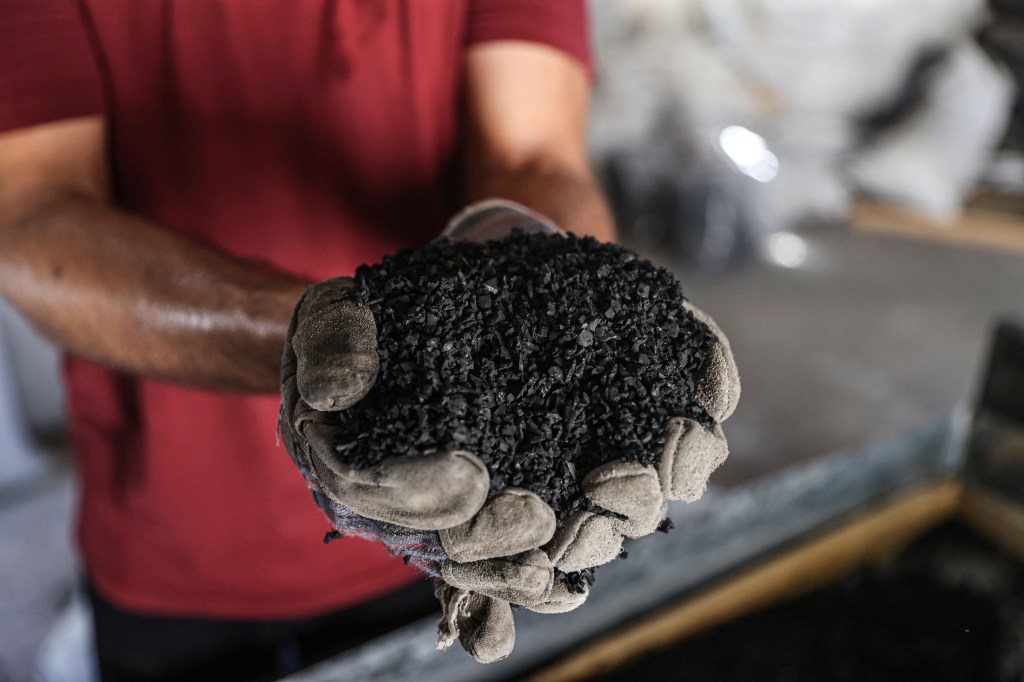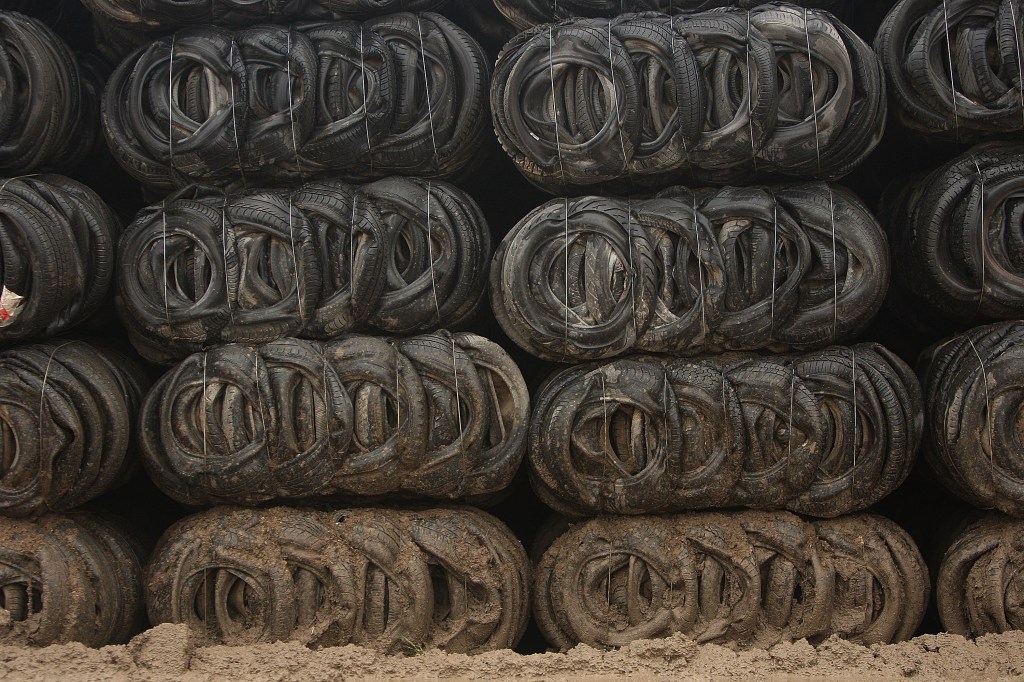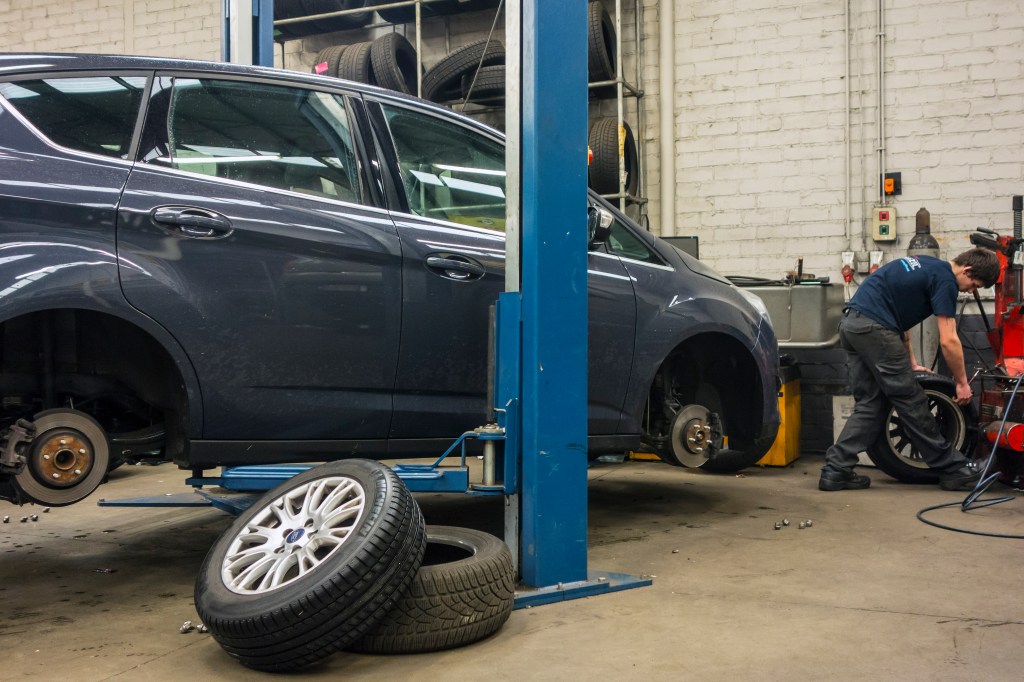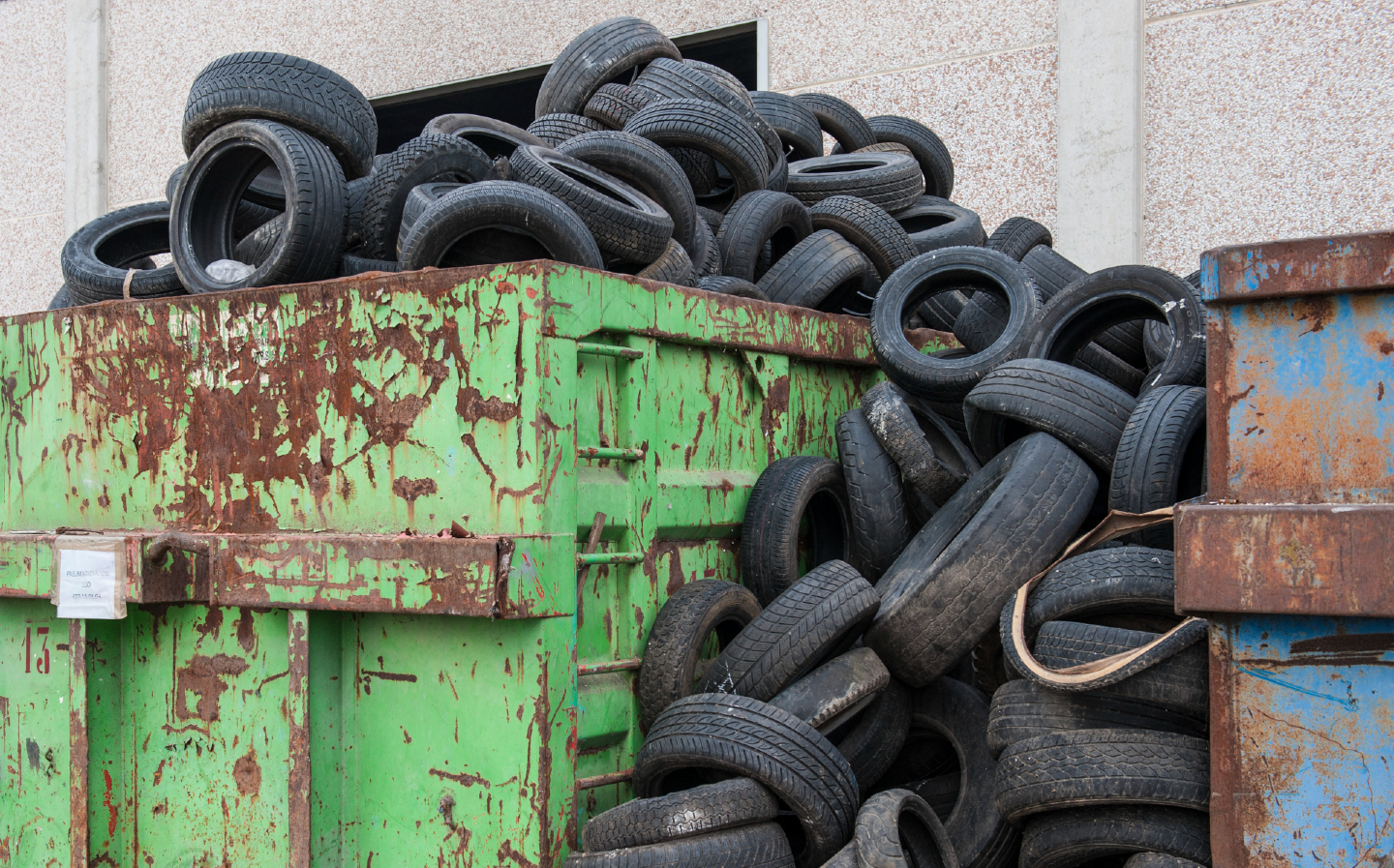Your car’s worn tyres could be being burnt illegally in India, investigation reveals
Illegal practices 'well-known' within the industry
It’s a problem few drivers think about: what happens to their car’s old tyres after being replaced with new ones by a garage. In the UK there are legal requirements for the responsible disposal of worn tyres — and drivers pay a fee for legal recycling — but a new investigation has found that the majority are ending up being bound and shipped from Britain to India, where they are burnt in makeshift furnaces, causing pollution and health problems for those living nearby.
Every year, around 50 million waste tyres (nearly 700,000 tonnes) are produced by the UK, and therefore in need of recycling. Authorised waste recycling centres are allowed to sort, granulate, bale, peel, shave, shred, cut, repair or retread used tyres, and reclaim organic substances that are not used as solvents, as well as metals (which are used in tyres for strengthening purposes).
Granulating or shredding tyres creates what’s called “rubber crumb”, which can be repurposed as flooring in equestrian centres, sports pitches, rubberised asphalt for roads or children’s playgrounds.

However, demand for these products is finite and so the remainder must be dealt with through other means. Rather than being handled in the UK, though, the BBC investigation (in collaboration with the reporters at SourceMaterial) found that around half of the UK’s 50m waste tyres are actually exported to India in compressed bales, and around 70 per cent of those — amounting to more than 17 million tyres — end up being “cooked”.
Damage to health and the environment
The process, called pyrolysis, involves an oxygen-free environment and temperatures of around 500C. The useful by-products are steel and small amounts of oil, as well as “carbon black”, which is a powder that can be used again in tyres as a strengthening agent, as well as for the production of ink and paint, conveyor belts, shoes, cables and other rubber products.
India has around 2,000 pyrolysis plants, the BBC found, though only half of those have permits from the government — the rest are operating illegally. It is also illegal in India to import tyres for pyrolysis.

The problem with pyrolysis is that dangerous gases and chemicals are also released, and unless these are cleaned up responsibly there are severe consequences for the local environment. People living in villages near the unlicensed plants have complained of health problems that the investigation has linked to pyrolysis pollution.
A team from BBC Indian Languages visited a “cluster of makeshift plants” in Wada, just outside Mumbai, and saw soot, dying vegetation and polluted waterways around the sites. It added that villagers complained of persistent coughs and eye problems.
Illegal tyre exports an open secret
The UK’s Department for Environment, Food and Rural Affairs (Defra) says it has strict controls on waste tyres, to ensure that they are responsibly recycled either in the UK or abroad. To cover this cost, drivers are charged a small fee of between £3 and £6 when changing their tyres.
Failure to follow the rules can result in unlimited fines and jail time, but according to the BBC it is well known within the industry that the majority of the UK’s exported waste tyres are sold into the Indian black market. This is because it is more profitable than processing the tyres in the UK, and investing in shredding machinery is costly.
Elliot Mason, owner of Rubber World — one of the biggest tyre recycling plants in the UK — told the organisation: “I don’t imagine there’s anybody in the industry that doesn’t know it’s happening.”
While large companies such as Rubber World have tightly regulated permits, and take their duty of care seriously, smaller firms are able to apply for an exemption — called a “T8” — that allows them to lawfully export up to 40 tonnes of tyres every week.
The BBC said that “many traders” told them they export volumes in excess of that amount, however, including one which sent five times that amount in the week it called. Campaigners and many industry organisations believe the government is aware that this is going on, it reported.
Government looking into problem
Defra told Driving.co.uk that the UK government is currently considering priorities for waste and resources, which includes reforms of the waste exemptions regime.
“This government is committed to transitioning to a circular economy, moving to a future where we keep our resources in use for longer while protecting our natural environment,” a spokesperson said.
“We have strict controls in place for exporting waste tyres – including unlimited fines and jail time for anyone found to be illegally exporting tyre waste.”
The Environment Agency (EA), an executive non-departmental public body sponsored by Defra, added that the export of waste tyres is legal but subject to controls set out in UK legislation, and businesses involved in the export of waste are required to take all necessary steps to ensure that the waste they ship is managed in an environmentally sound manner.
It also pointed out that the import of waste tyres into India for pyrolysis was prohibited under Indian legislation in July 2022, but said the Indian government is responsible for controls that apply to waste once it has been imported, as well as communicating these controls to organisations outside the country.
“We take the control of waste exports very seriously and operators found to be illegally exporting waste can face a two-year jail term,” said an EA spokesperson.
“We continue to work with our Indian counterparts to ensure that waste, including end of life tyres, is recovered and recycled in compliance with the relevant regulations.”
Responsible tyre recycling
When done responsibly, using the latest technology, there are significant benefits to pyrolysis, according to a leading tyre recycling platform based in the UK.
“[It] is not bad when carried out in environmentally conscious ways and is actually a superior solution to mechanical recycling,” said Alexander Guslisty, CEO and founder of Big Atom. “Pyrolysis creates high-value outputs like tyre pyrolysis oil and recovered carbon black, which is the only way to achieve a circular economy because the outputs can be re-used to create new products, including tyres.
“Tyre manufacturers are under pressure to use 100 per cent sustainable materials in their products, creating a large demand for these recycled raw materials.”
Guslisty said pyrolysis technology is growing at a commercial scale around the world, including with projects in the UK. However, the problem is how fragmented tyre waste is in the UK — spread across thousands of independent garages, making it hard to control or channel into sustainable methods like high-tech pyrolysis.
“The government is in a difficult position,” said Guslisty. “In reality, there is currently no domestic outlet large enough to absorb all the waste tyres that are being exported.
“High-tech pyrolysis plants need to be developed, built, and tested — and that will take years. But the government must start facilitating that future now by ending T8 exemptions. These exemptions facilitate illegal export operations that prevent the permitted recycling sites in the UK from getting the tyres they are regulated to receive. The UK still has over 150,000 tonnes (roughly 25 per cent) worth of capacity that is not being utilised.”
Guslisty said the Big Atom platform allows responsible stakeholders to do the right thing.
“Waste tyres are scattered across thousands of garages, who often choose the cheapest disposal route, regardless of environmental impact. Meanwhile, the stakeholders who do care — manufacturers and wholesalers — historically had no real influence over how their products were recycled, as they weren’t handling the waste directly.
“To solve this, we developed a recycling voucher — a mechanism that allows manufacturers and wholesalers to fund responsible recycling and shape how their products are treated at end-of-life.
“It shifts responsibility away from garages and towards the corporates with sustainability obligations and reputational risk, while removing the burden — and temptation to cut corners — from garages.”
Guslisty said this helps ensure that sustainable practices like high-tech pyrolysis can grow in scale.
Tyre manufacturers respond
Driving.co.uk contacted two major tyre manufacturers for comment on their own policies for sustainability and tyre end of life care, one of which referred us to the British Tyre Manufacturers’ Association (BTMA), of which it is a member.
In response to the BBC File on 4 Investigates exposé, the BTMA claimed tyre manufacturers are not the primary contributors to the challenges surrounding the export of waste tyres to India and said it remains committed to working with policymakers to implement practical solutions that protect the environment while enhancing the UK’s domestic recycling capabilities.
“We recognise the urgency of addressing this issue but believe the most effective way forward is through collaboration,” said Darren Lindsey, the BTMA’s chief executive. “We want to work with the government and other stakeholders to develop a system that not only eliminates harmful waste exports but also ensures that ELTs (end-of-life tyres) are repurposed in a way that delivers lasting environmental and economic benefits to the UK.”
The body called for the introduction of policies that end the T8 exemption, introduce stricter controls and traceability measures to monitor the movement and disposal of old tyres, and promote investment in innovative recycling technologies.
What can drivers do to ensure their old tyres are disposed of responsibly?

If you’re a driver who cares where your old tyres end up, what can be done to help ensure they are handled responsibly?
“Sadly, the system is designed so the driver pays the fee but the garage has the power to decide how the tyres are disposed” said Guslisty. “Even if the driver is paying enough to responsibly recycle the tyre, the garage often profits from this and still uses the lowest disposal route.
“Our system can combat this if the garage is using it, but in the case they are not, the driver can always ask the garage if their tyre recycler is EA permitted, and encourage them to reach out to Big Atom if they are unsure or need a more sustainable solution.”
Related articles
- If you were interested in the BBC investigation into millions of worn tyres being sent from the UK to India to be burnt, you might like to read about the car finance mis-selling scandal, which could mean those who took out PCP or HP deals are owed compensation
- Did you know a former Conservative government adviser on the environment told Times Radio in 2021 that she planned to stick with her diesel car?
- Here are five ways carmakers are becoming kinder to the environment
Latest articles
- F1 2025 calendar and race reports: The Formula One season as it happens
- Extended test: 2024 Renault Scenic E-Tech review
- Smart #5 2025 review: Not a high five, but the best Smart for years
- BMW iX xDrive45 review 2025: Divisive looks remain but updated electric SUV is otherwise superb
- Aston Martin Vantage Roadster 2025 review: Still hardcore but with added pose factor
- Updated Skoda Enyaq vRS matches 0-62mph time of Czech firm’s fastest-ever car
- Long Way Home review — Ewan McGregor and Charley Boorman hit the road again
- ‘I was a tear-soaked mess’ — Richard Hammond opens up on his last Top Gear show during new race with James May
- Charley Boorman: Potholes? You should see the ones Ewan and I faced in Kazakhstan














